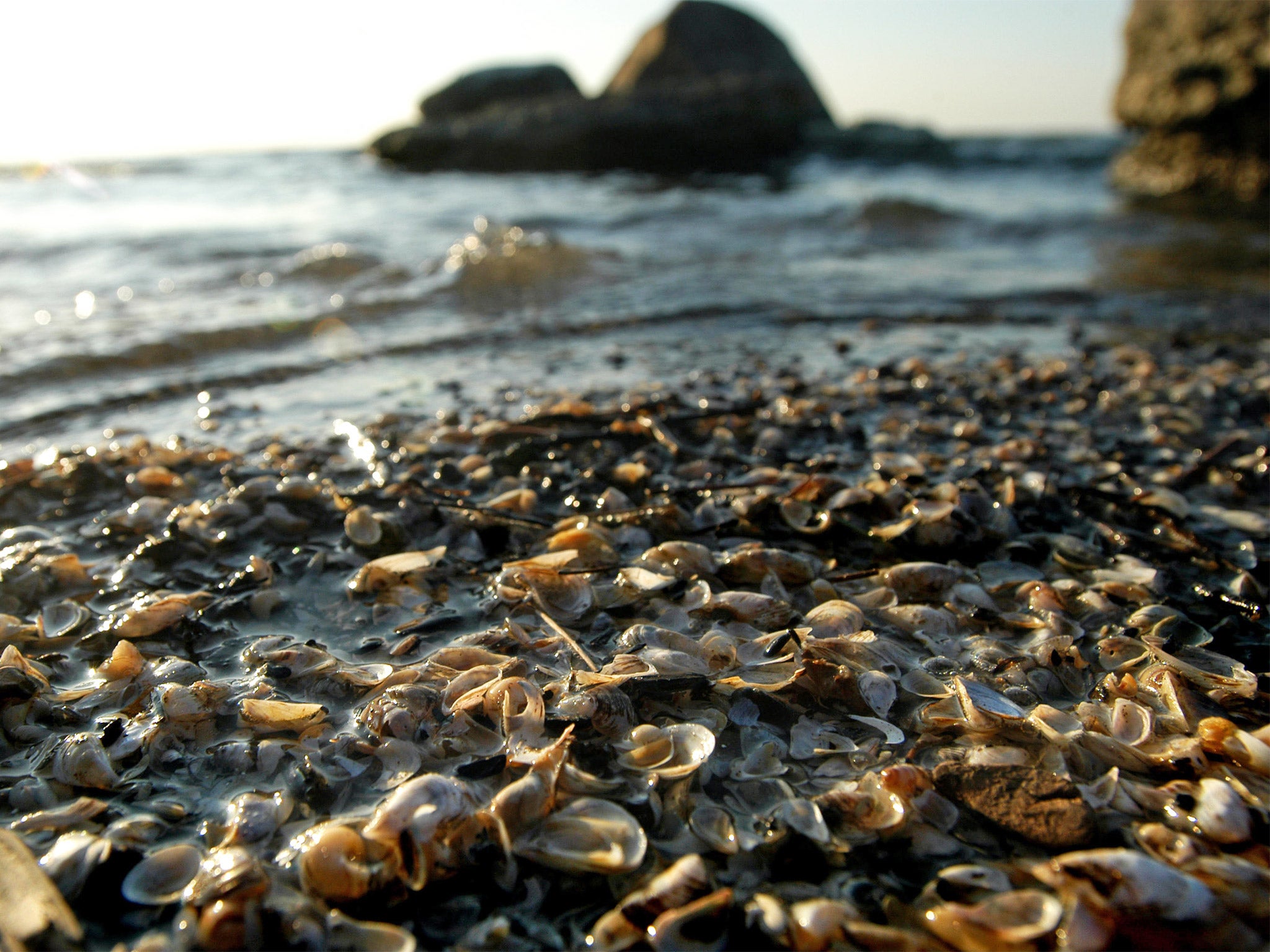Menacing mussels top danger list of invasive species
Racoons, ibises and Asian hornets among threats to UK environment

Your support helps us to tell the story
From reproductive rights to climate change to Big Tech, The Independent is on the ground when the story is developing. Whether it's investigating the financials of Elon Musk's pro-Trump PAC or producing our latest documentary, 'The A Word', which shines a light on the American women fighting for reproductive rights, we know how important it is to parse out the facts from the messaging.
At such a critical moment in US history, we need reporters on the ground. Your donation allows us to keep sending journalists to speak to both sides of the story.
The Independent is trusted by Americans across the entire political spectrum. And unlike many other quality news outlets, we choose not to lock Americans out of our reporting and analysis with paywalls. We believe quality journalism should be available to everyone, paid for by those who can afford it.
Your support makes all the difference.A black-and-white mussel that is native to the Black Sea and poisons water has been identified as the species most likely to invade the UK and wreak havoc on the environment.
Researchers from 21 institutions have unanimously voted the quagga mussel, which is now well established in the Netherlands, as posing the greatest threat to Britain’s ecosystems among those species which have yet to reach the UK but are expected to arrive in the next few years.
The mussel – officially known as Dreissena rostriformis bugensis – is thought likely to enter the country in canoes, sailing dinghies or the ballast water of a ship.
The mussel, known in ecology circles as an “ecosystem engineer” because of its transformative impact on the environment, is just the size of a thumbnail, but clusters can grow metres thick. It is a menace on a number of fronts, according to Dr Helen Roy, of the Centre for Ecology & Hydrology who led the research project.
Much of the damage quagga mussels inflict derives from their eating habits; they filter the water through their system to extract the food and discard unwanted matter in the form of “pseudofaeces”.
The filtering process removes valuable food needed by other species, creates poisonous waste and radically alters the chemical composition of the water.
“Quaggas are prodigious water filterers, removing substantial amounts of phytoplankton – or algae – from the water. The pseudofaeces that is produced from filtering the water accumulates and creates a foul environment, containing pollutants which can be passed up the food chain,” said Dr Roy.
“The filtration of the water increases its transparency, which increases light penetration and causes a proliferation of aquatic plants that can change species dominance and alter the entire ecosystem,” Dr Roy added. The mussel also clogs up pipes.
The report, which also includes contributions from Cambridge University, the Natural History Museum, the Royal Horticultural Society and the Zoological Society of London, analysed 591 non-native species that are expected to enter the UK in the next decade. While the majority posed no environmental risk, the researchers identified 93 constituting a medium risk, and 30 a high risk.
Other high-risk species include the raccoon, the African sacred ibis, the Asian hornet and the Pine processionary moth.
Raccoons are high on the list because they are widely featured in zoos and private collections, and in other countries, particularly in Germany, have been shown to be adept at breaking out. As a result it is thought to be only a matter of time before they bust out into the wild in the UK, to prey on birds’ eggs and amphibians, and to spread raccoon roundworm, which is dangerous to birds and mammals.
The Asian hornet has made it to France and is thought likely to fly to the UK – or enter in a holidaymaker’s luggage – in the near future. Its danger stems from its diet of honey bees and other pollinators, at a time when these insects are already suffering from habitat loss and pesticides.
Although climate change is making it easier for some species to settle in the UK, in most cases the species will invade in ballast, timber and vehicles, aided by the rise in trade and travel, Dr Roy said.
Join our commenting forum
Join thought-provoking conversations, follow other Independent readers and see their replies
Comments